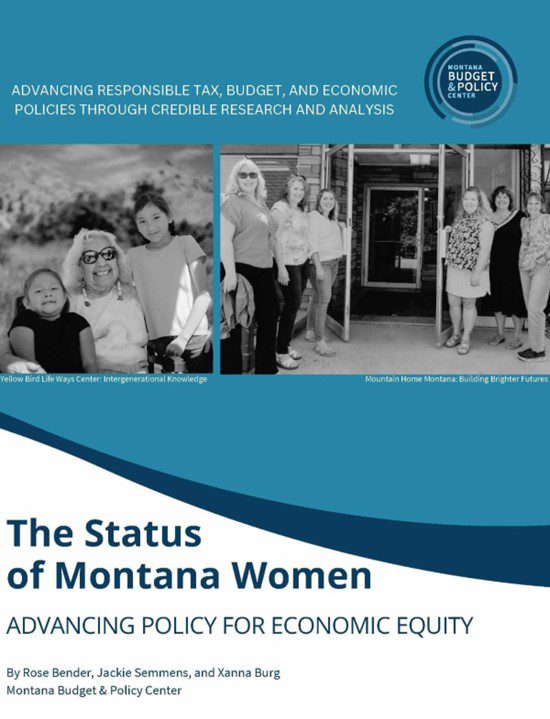
Women in Montana have a long history of economic contributions and success. However, women are still underpaid relative to men, are more likely to work in industries where their expertise is undervalued like caretaking, and face disproportionate threats to their personal safety and wellness. Montana women with intersecting marginalized identities, including Black, Indigenous, and people of color (BIPOC), and LGBTQ+ women, face heightened obstacles. Tracking and evaluating the economic status of women in Montana is important to help target policies that work to improve equity. This report identifies solutions to help close the gaps in economic outcomes for Montana women.